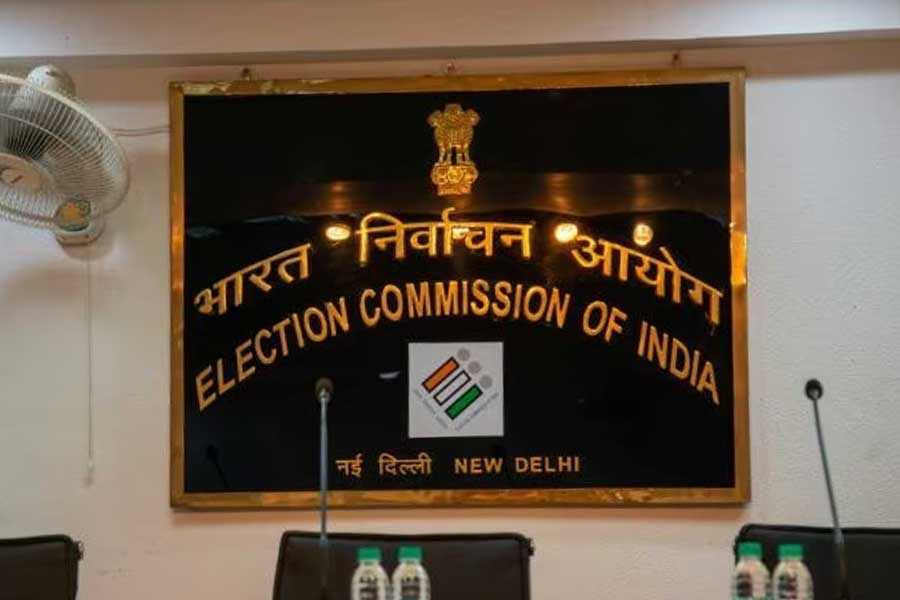The Centre has set in motion a stricter disclosure regime for Indian companies to reveal the identity of a “significant shareholder” who prefers to mask the extent of his influence and control behind a cobweb of complex corporate structures.
The ministry of corporate affairs came out with a gazette notification on February 12 that gave all companies — listed and unlisted entities — 90 days’ time to ascertain the identity of all significant beneficial owners (SBOs) and submit a report to the Registrar of Companies (RoC).
Listed companies, however, will have a shorter time span to determine and make such disclosures unless the market regulator, the Securities and Exchange Board of India (Sebi), extends its deadline to submit such disclosures by March 31.
Under the Companies SBO Amendment Rules, 2019, clear criteria have been set out by the government to identify individuals who will come under the ambit of the SBO regulations compared with an omnibus and opaque definition that was put out in June 2018.
A look-through basis test has been prescribed to determine the extent of indirect control that individuals hold over the reporting companies that is often concealed behind myriad entities, including body corporates, HUFs, partnerships, trusts, and pooled investment vehicles.
The new guideline has also sought to define what constitutes “significant control”, a determinant for SBO, which can potentially call into question private treaties between individuals as well.
The criteria
According to the latest guideline, an SBO in relation to a reporting company will be an individual who, acting alone or together with one or more person or trust, holds a 10 per cent stake in a company indirectly or together with other direct holdings.
If the individual holds 10 per cent or more voting rights of the company indirectly or together with other direct holdings, the SBO rule will kick in.
Moreover, an individual will be recognised as an SBO if he or she has the right to receive or participate in not less than 10 per cent of the total distributable dividend, or any other distribution, in a financial year through indirect or direct holdings.
An individual will also qualify as an SBO if the person has the right to exercise or actually exercises significant “influence” and “control”.
Moreover, an individual who holds a majority (more than 50 per cent) stake in the ultimate holding firm of a company, irrespective of whether it is incorporated or registered in India or abroad, will also qualify as an SBO.
Significant influence
The new guideline defines “significant influence” as the power to participate, directly or indirectly, in the financial and operating policy decisions of the reporting company without any control over those policies. The definition of “control” will, however, be according to clause 27, section 2 of the Companies Act, 2013.
Incidentally, forms required to be filed by an SBO to the company and then by the company to regulatory authorities seek copies of all
the agreements that enable a person to exert significant “control” or “influence”.
Corporate lawyers said what constituted “influence” would still be open to interpretation.
“Ambiguities still prevail on account of significant influence,” noted Shourya Sengupta, senior associate at Khaitan & Co.
It remains to be seen whether a private and unregistered agreement between individuals, which grants certain affirmative rights in respect to a company, will be construed as influence. “The parties may not be keen to disclose those agreements. There’s a reason why these agreements have been kept private or unregistered,” legal experts pointed out.
This could be negative for start-ups where the minority stake also comes with certain pre-conditions, such as the permission to raise debt, equity, the right of being inducted into the board, floating a subsidiary, or provision of a corporate guarantee or loans.
A glance through the shareholding patterns of listed companies may underline the challenges ahead. In almost all such companies, individuals who are identified as promoters hardly own any significant shares directly in their own names.
Most of the promoters control significant stake or exert influence in listed companies through unlisted companies, trusts or LLPs, preventing market participants to understand the exact quantum of shares they control in those companies.
The amendment also conclusively established 10 per cent as the threshold to qualify as an SBO, instead of 25 per cent as stated in the original section 90 of the Companies Act, 2013. Industry was hoping the old threshold would be reinstated.
The exemption
The new SBO amendment leaves out a certain section of the corporate world from its ambit, especially state and central PSUs, investment vehicles registered with Sebi, or regulated by the RBI, Irda and the PFRDA. A holding firm of the reporting company has also been left out.
WHO WILL COME UNDER NEW NORMS
An SBO will be an individual who...
- Acting alone or together with one or more person or trust, holds 10% in a company indirectly or together with other direct holdings
- Holds 10% or more voting rights of a company indirectly or with other direct holdings
- Has the right to receive or participate in not less than 10% of the total distributable dividend, or any other distribution, in a financial year through indirect or direct holdings
- Has the right to exercise or actually exercises significant “influence” and “control”
- Holds more than 50% in the ultimate holding firm of a company, irrespective of whether it is incorporated or registered in India or abroad










